The Canadian Opera Company’s annual performance data shows the impact of COVID-19 could have been much worse.
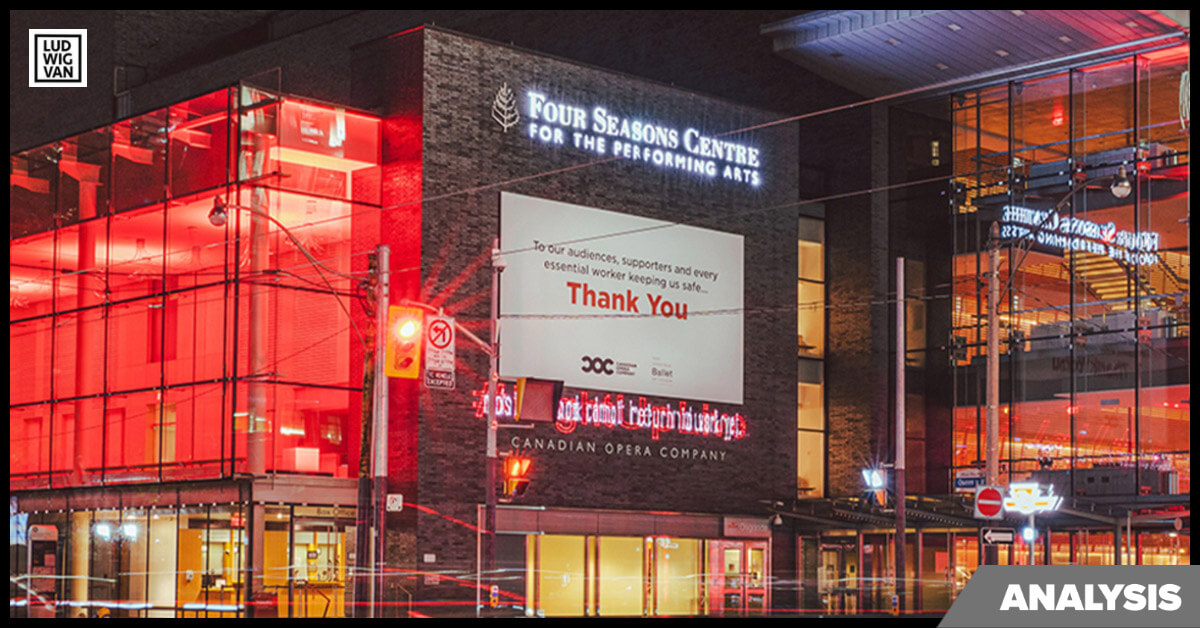
The Canadian Opera Company presented an all virtual Annual General Meeting (AGM) last week to over 150 attendees, including COC Board Chair Jonathan Morgan and COC General Director Alexander Neef.
With an unexpected and premature exit of Neef to the Opéra national de Paris, and the provincial orders keeping concert halls closed amid COVID-19, this is not business as usual for any organization operating in the arts sector right now.
“This past year will be etched into our collective memories for the many challenges it presented, to our company and to the world,” says COC Board Chair Jonathan Morgan.
As part of their Annual General Meeting, the COC presented an optimistic outlook with materials posted on their website that include audience impact reports, season highlights, and a “Financials at a Glance” report that largely left the math up to the reader to see an operating deficiency of $677,000 for 2019-20.
“…Our 19/20 season was also filled with many significant success stories, including the overall financial health of the organization within the context of this moment,” said Morgan. The board also thanked the Government of Canada for stepping in with emergency funding, which Morgan mentioned played an “integral role in keeping the company largely whole.”
“The COVID-19 pandemic marked a moment of great pause and recalibration for the entire performing arts industry,” added Neef. “As spring ushered in a renewed social movement aimed at addressing racism and representation across the sector and the globe, the COC started an ongoing dialogue with staff and artists about creating a workspace that aligns with company values of mutual respect and inclusivity.”
While the full financial reports were not released to the COC’s website, they have provided us with the full data. This data has been analyzed objectively to show the impact that the pandemic has had on the COC.
Despite the pandemic, the COC has been experiencing a downward trend in key performance areas, which appears to have been accelerated by COVID-19.
DEEP DIVE

The table above shows key performance indicators for COC operations between 2015 and 2020. Side-by-side, we can see how the COC pulled back from the total number of performances in 2018/19 while managing to increase revenue. The second quarter of 2020 saw the COC lose two main stage productions (Aida and The Flying Dutchman) due to the fallout from COVID-19 restrictions. In context, this represents a loss of one-third of their revenue opportunities for the season due to COVID-19.
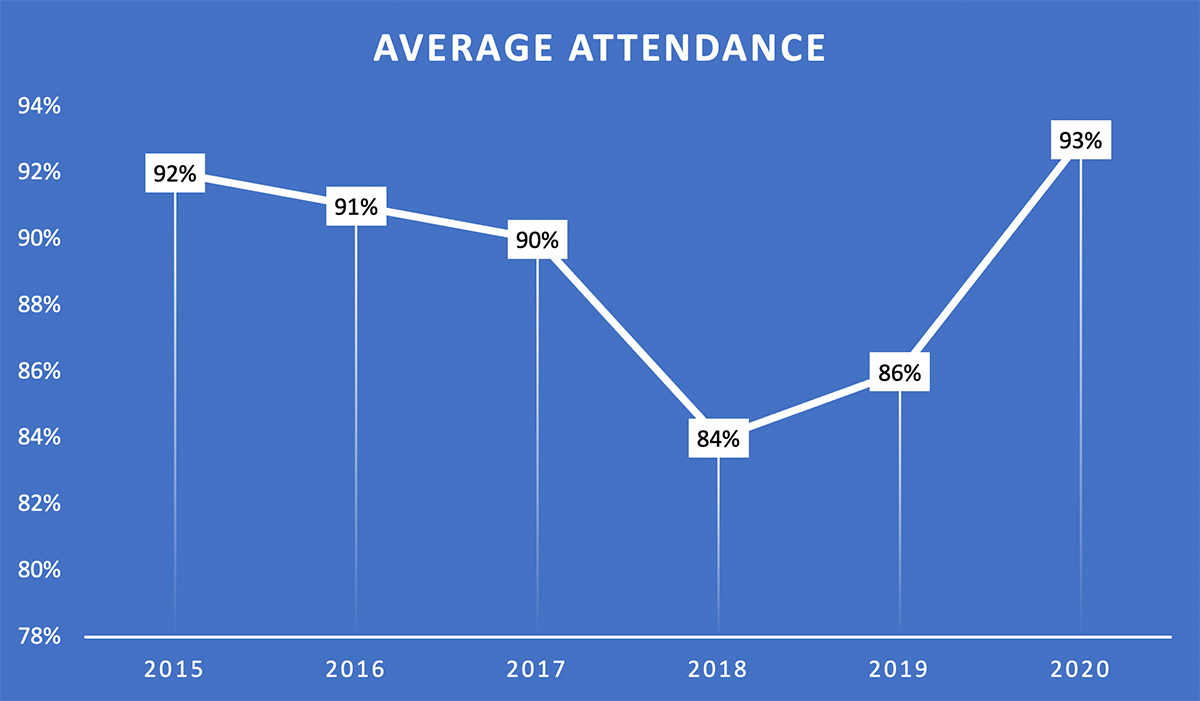
The good news here is average attendance is up from 2018’s low of 84% to 93% in 2020. This is a significant accomplishment and shows the COC programming is resonating with audiences.
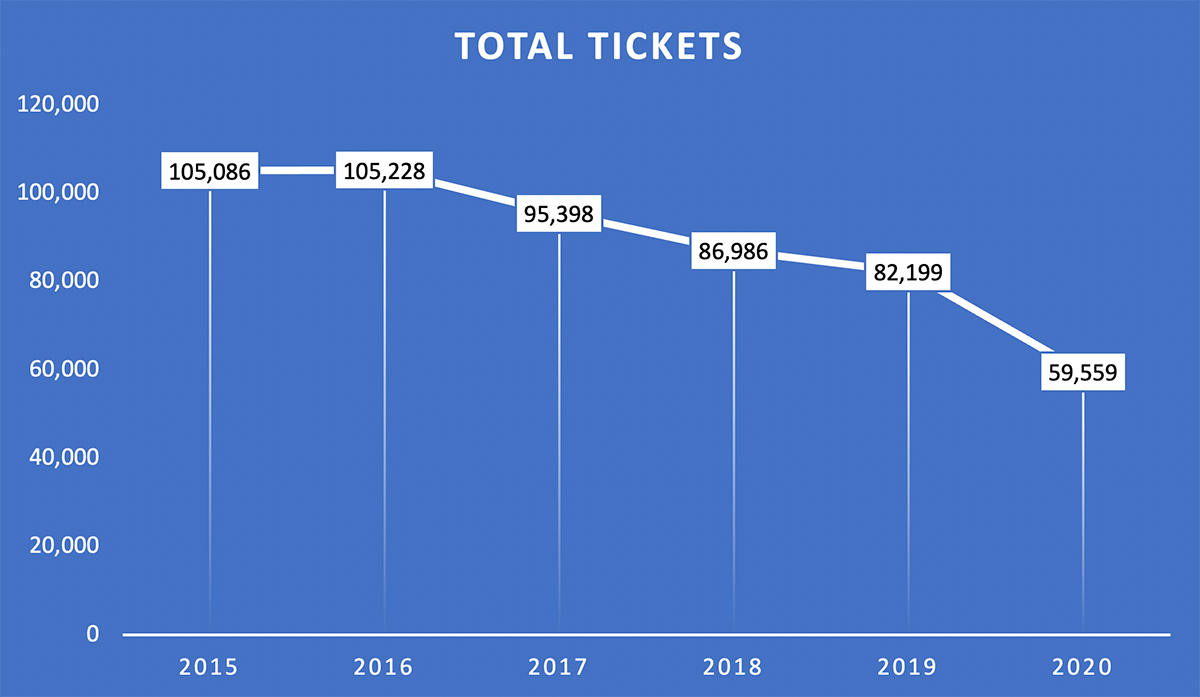
According to the COC, 3,053 people are choosing to donate the value of their spring tickets to the COC. Despite the drop in ticket sales due to COVID-19, they sold an average of 1,854 tickets per performance compared to 1,706 tickets per performance in 2018, which suggests that they were on track for a modest increase in ticket sales in 2020.
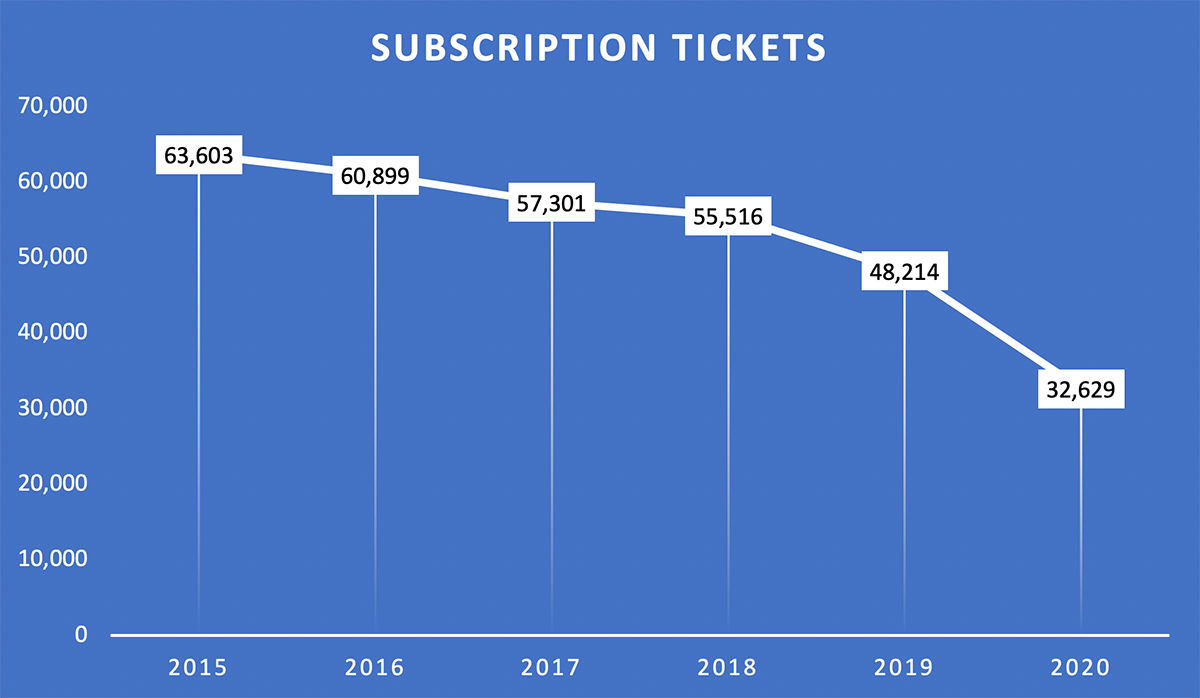
Besides being an important revenue generator, subscriptions represent the company’s most loyal audiences and seeing a downward trend is a pause for concern. The above figures show a staggering 49% decline in subscriptions from just five years ago. However, as of December 2019, the COC had a 92% subscriber retention compared to 88% in 2018-19.
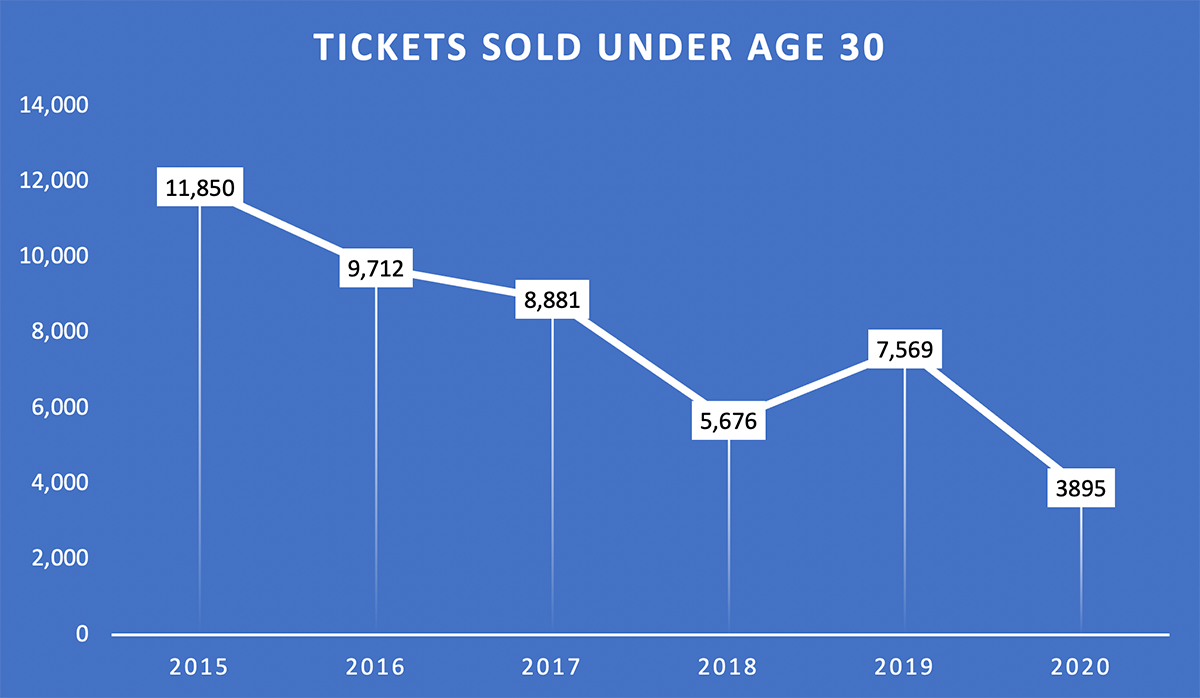
The under 30 ticketing category represents, arguably, the nurturing of future opera fans, representing the future of the art form. The COC averaged 125 Under 30 tickets sold per performance in 2020, compared to 132 tickets sold per performance in 2018-19. There are likely many complex reasons for the trend, including increasing competition, particularly from digital platforms, as well as the changing entertainment preferences from Millennials and Gen Z.
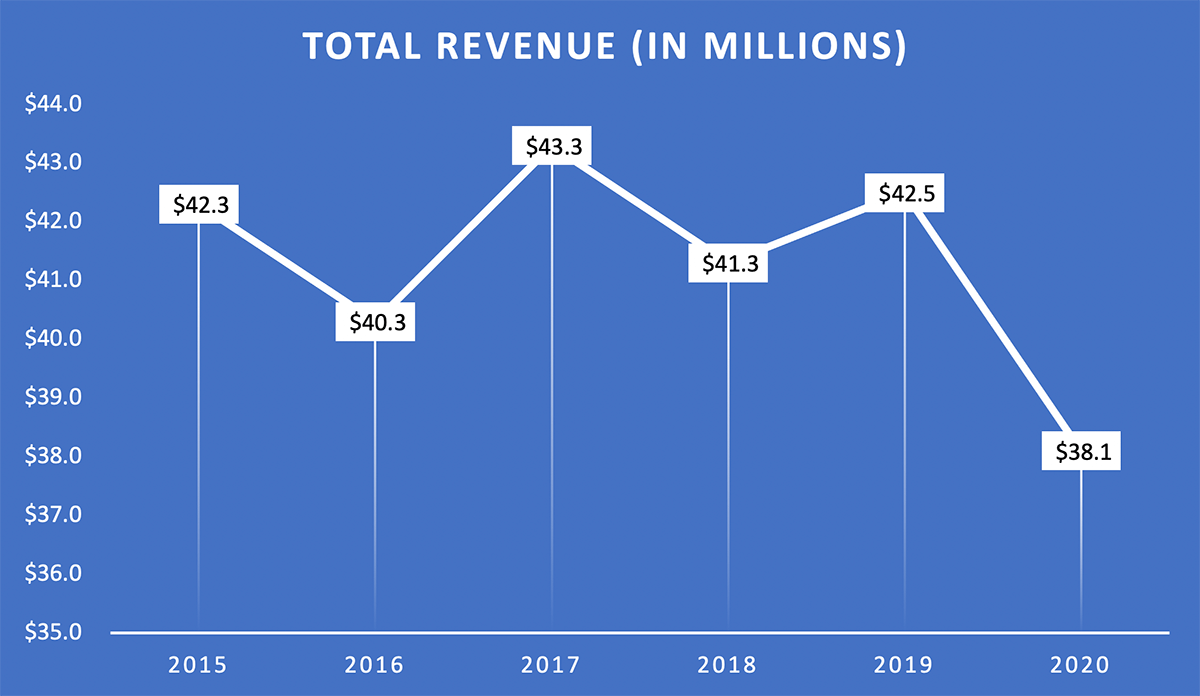
While the COC audience continues to decline, they have managed to keep their revenue remarkably stable. The obvious anomaly here is the pandemic, which resulted in the $677,000 loss last season.
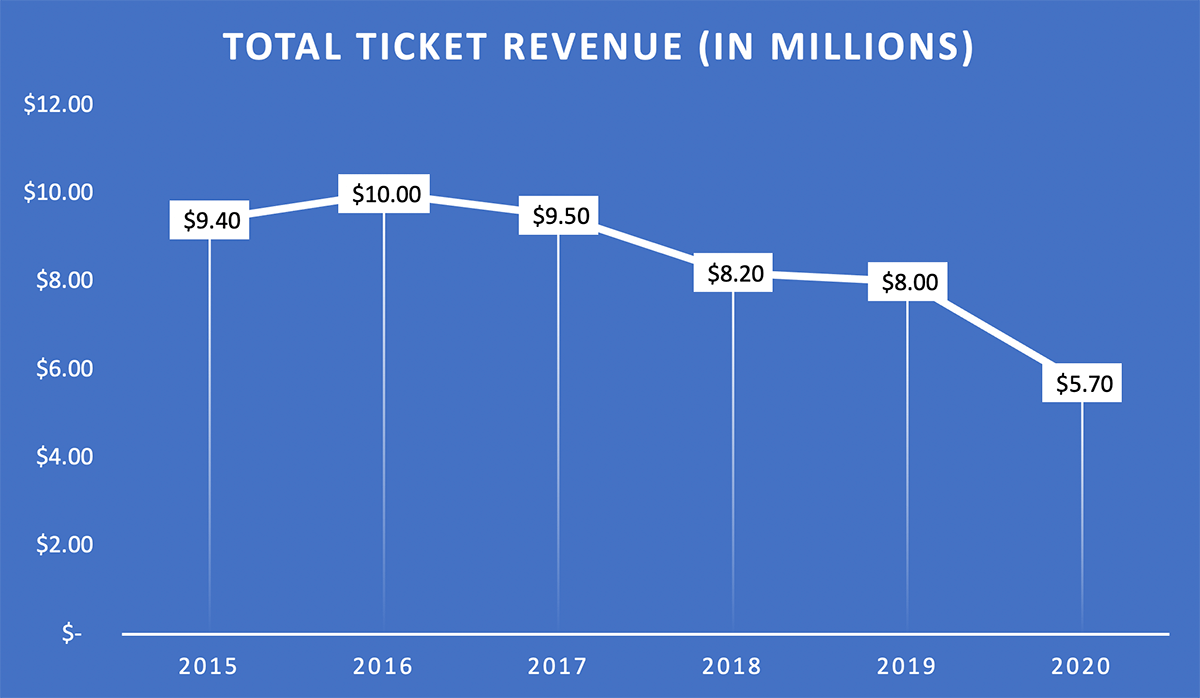
Last season’s cancellation of 17 performances exaggerated the decline in ticket revenue, but the trend shows the COC appear to be relying more on government grants and fundraising for operations.
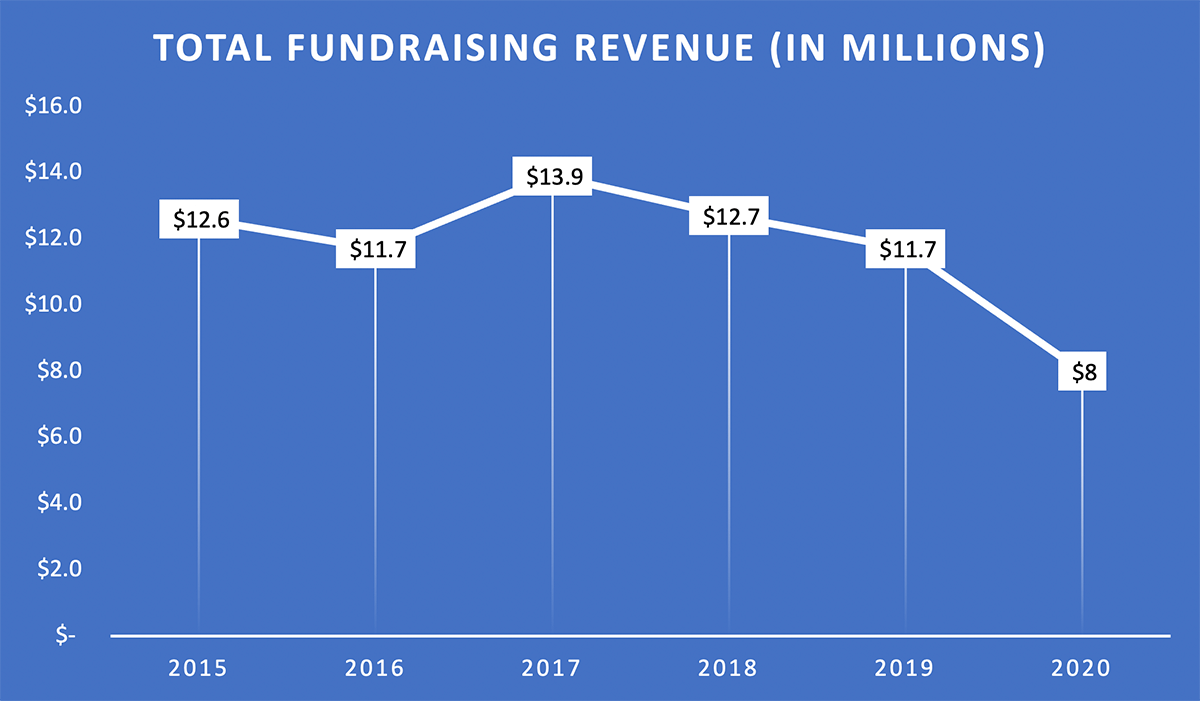
One of the largest blows to the COC over the pandemic has been to its fundraising. The pandemic resulted in the COC cancelling a number of fundraising events, including OperaNation: Opera Club in May 2020, which would have generated some much-needed funds.
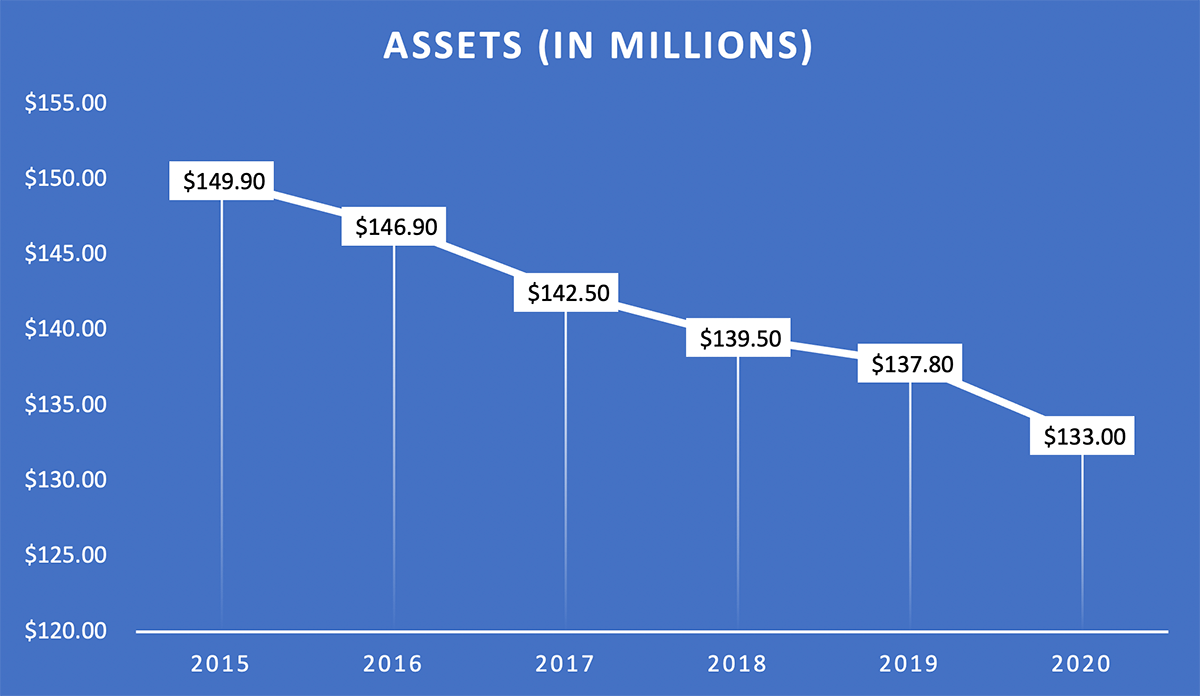
Like all major arts organizations, the COC relies on its foundation to balance the books. As of December 31, 2019, the COC’s Foundation’s endowment is sitting at $42.3 M, up from last year’s $39.8 M. The COC pulled just under $3.4 M from the foundation in grants, and received $630,000 in donations and bequests.
All told, like everyone in the event sector, the COC has been heavily impacted by the COVID-19 pandemic. But considering the pandemic landed at the end of the COC’s season, the impact could have been much, much worse. The only concern is that with all main stage production cancelled through 2020/21, the COC will not be in a position to recover from the COVID-19 pandemic until at least 2022.
To view the COC’s 2019/2020 Financials At a Glance as well as the COC’s full Audience Impact Report visit coc.ca/AGM1920.
#LUDWIGVAN
Get the daily arts news straight to your inbox.
Sign up for the Ludwig van Daily — classical music and opera in five minutes or less HERE.
- THE SCOOP | Royal Conservatory’s Dr. Peter Simon Awarded The Order Of Ontario - January 2, 2024
- THE SCOOP | Order of Canada Appointees Announced, Including Big Names From The Arts - December 29, 2023
- Ludwig Van Is Being Acquired By ZoomerMedia - June 12, 2023



